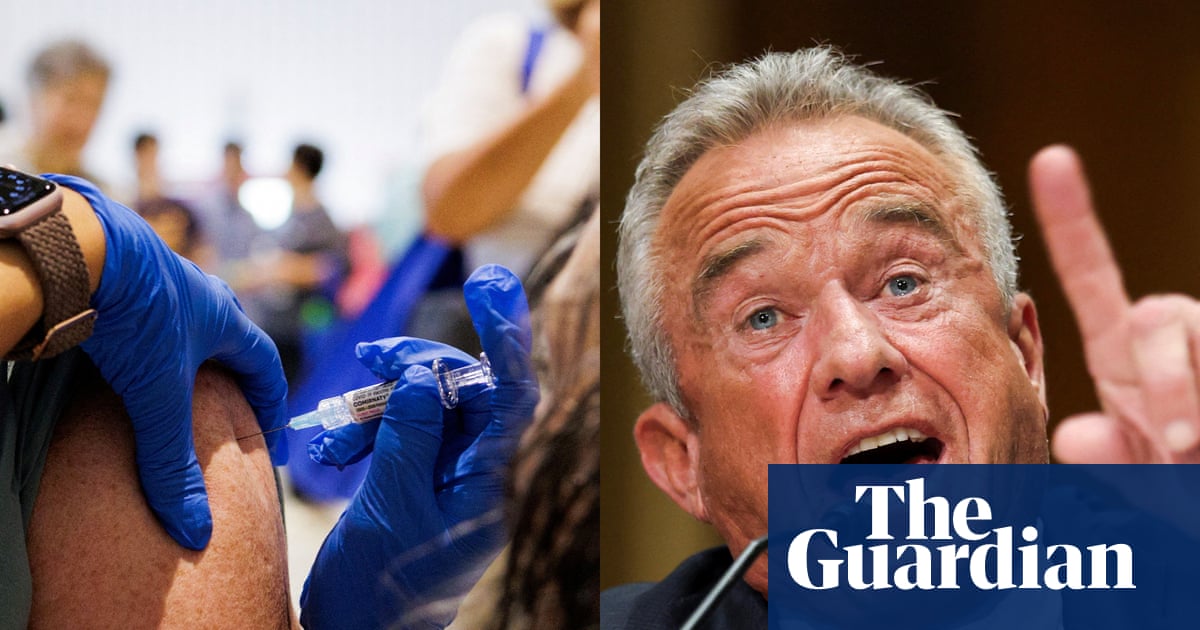The rollout of updated Covid-19 booster shots under the Trump administration has been marred by significant access issues and widespread misinformation, creating a climate of confusion and chaos within the US healthcare system. Individuals seeking the vaccine have encountered numerous hurdles, including difficulties understanding eligibility requirements, scheduling appointments, processing insurance claims, and navigating misinformation spread by some pharmacists. Experts warn that these obstacles will disproportionately affect marginalized communities, particularly people of color and low-income individuals.

This chaotic situation is further exacerbated by turmoil within US health agencies. High-level departures from the Centers for Disease Control and Prevention (CDC) have been attributed to alleged pressure from the Trump administration to approve scientifically questionable vaccine policies and implement new, restrictive limitations on Covid-19 vaccine access. The conflicting messaging from Robert F. Kennedy Jr., secretary of the US Department of Health and Human Services (HHS), only compounds the problem. While initially claiming "Anybody can get the booster," he later clarified that it was "not recommended for healthy people," creating confusion and undermining public trust.
Real-world examples highlight these challenges. Matt Shipman, a health writer in North Carolina, faced delays in obtaining his booster shot, encountering difficulty in both scheduling appointments and obtaining a prescription. This situation is not unique to North Carolina; several states require prescriptions for Covid-19 vaccinations, creating additional barriers. This requirement stems partly from the fact that some pharmacists are legally prohibited from administering vaccines not explicitly recommended by the CDC’s Advisory Committee on Immunization Practices (ACIP), and lack the same liability protection as physicians under the Prep Act.
Further complicating matters, some insurers are delaying coverage until the vaccines receive ACIP recommendation. The ACIP’s upcoming meeting to discuss Covid-19 vaccine recommendations has been shrouded in controversy, with calls for postponement amidst the ongoing upheaval within health agencies. This uncertainty exacerbates the difficulties faced by individuals seeking vaccination.
Even in states attempting to mitigate the confusion, challenges remain. Maryland, for instance, issued guidance promoting broad access to vaccines, yet some pharmacies continue to restrict access based on age or pre-existing health conditions. Similar experiences across the country underscore the inconsistent implementation of vaccine policies.
The inconsistent messaging and restrictive policies have far-reaching consequences. Dr. Ian Morgan, a postdoctoral fellow at the National Institutes of Health, blames the chaos on Kennedy's contradictory statements, arguing that "the chaos is the point." This manufactured chaos directly harms public health, particularly among vulnerable populations. The significant logistical and administrative barriers – including lack of transportation, technological literacy, and childcare – disproportionately affect marginalized communities.
Access to pediatric vaccines lags even further behind adult access, adding another layer of complexity for families with young children. Joanne Hilden, a retired physician, exemplifies this struggle, facing difficulties in securing updated vaccines for her grandchildren.
Ultimately, overcoming these obstacles requires a multi-pronged approach. Swift action at the state level, improvements in communication, and addressing the underlying systemic inequities that disproportionately impact marginalized communities are crucial steps towards ensuring equitable access to Covid-19 vaccines for all Americans.
---
Originally published at: https://www.theguardian.com/world/2025/sep/11/covid-vaccine-boosters-rfk
